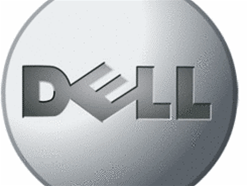
The first products are due in the second half of this year, when Dell plans to launch a new blade server infrastructure. The company also is developing software that will allow the deployment of new virtual machines within minutes.
Dell will also offer services that allow companies to assess whether they are ready to deploy virtualisation, and determine the best way to roll out the infrastructure.
Migrations from a physical infrastructure to a virtual environment can take "months", according to Jay Parker, Dell's director of worldwide enterprise marketing.
Vendors like HP and IBM are primarily out to push their consultancy services to solve all the problems that organisations face, Parker asserted.
By comparison, Dell positions its services organisation as a way to help companies solve problems on their own.
"[Project Hybrid] will redefine the way that customers look at enterprise computing. It will simplify their life and their environment," said Parker.
But despite big promises, Dell revealed remarkably few details about the products that make up Project Hybrid. The company instead made sure to take repeated jabs at HP and IBM for their alleged mistakes.
Dell also accused HP and IBM of reintroducing vendor lock-in with their latest blade server designs. The companies focus on the blade form factor too much, according to Parker, ignoring the large installed base of rack and tower servers.
The key to Dell's approach to the enterprise IT market is allowing customers to purchase systems that work out of the box, claimed chief technology officer Kevin Kettler.
Dell wants to move up in the IT food chain. Instead of selling boxes that customers piece together, the firm wants to move into more tightly integrated stacks that offer higher profit margins.
"Think of it as Dell historically having been at a platform level. And less so at the aggregation level, solving a much larger solution-oriented problem," said Kettler.

_(20).jpg&h=140&w=231&c=1&s=0)
_(33).jpg&h=140&w=231&c=1&s=0)







 iTnews Executive Retreat - Security Leaders Edition
iTnews Executive Retreat - Security Leaders Edition
 iTnews Cloud Covered Breakfast Summit
iTnews Cloud Covered Breakfast Summit
 Melbourne Cloud & Datacenter Convention 2026
Melbourne Cloud & Datacenter Convention 2026
 The 2026 iAwards
The 2026 iAwards












_(1).jpg&h=140&w=231&c=1&s=0)



